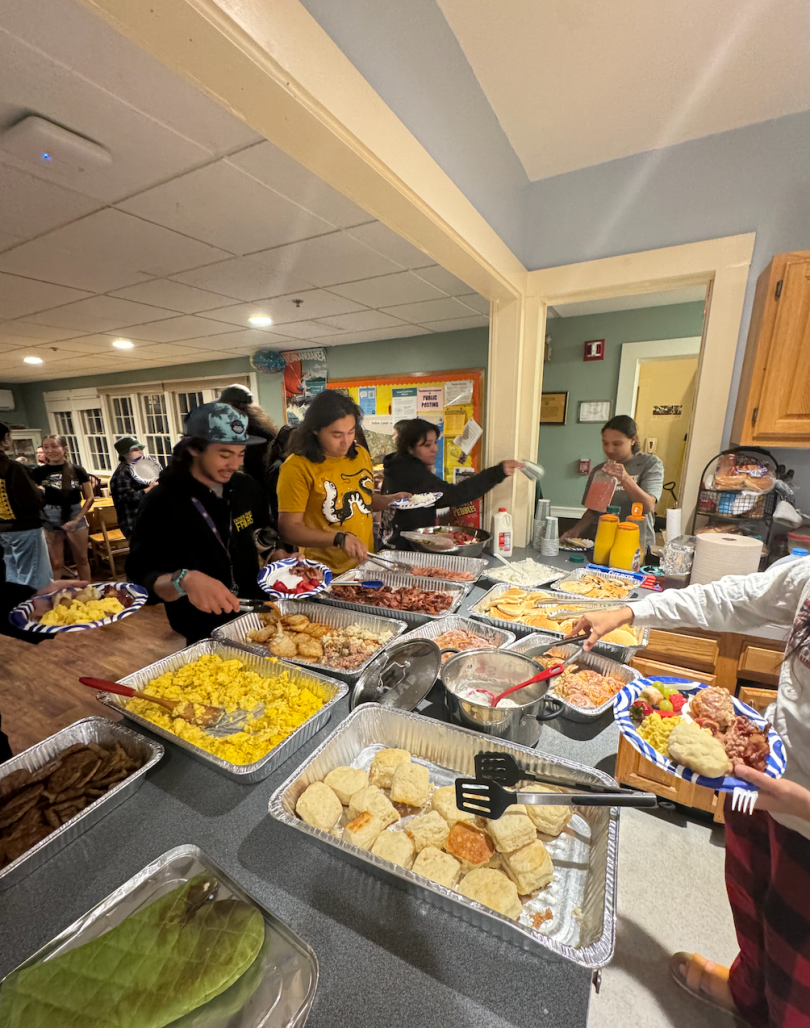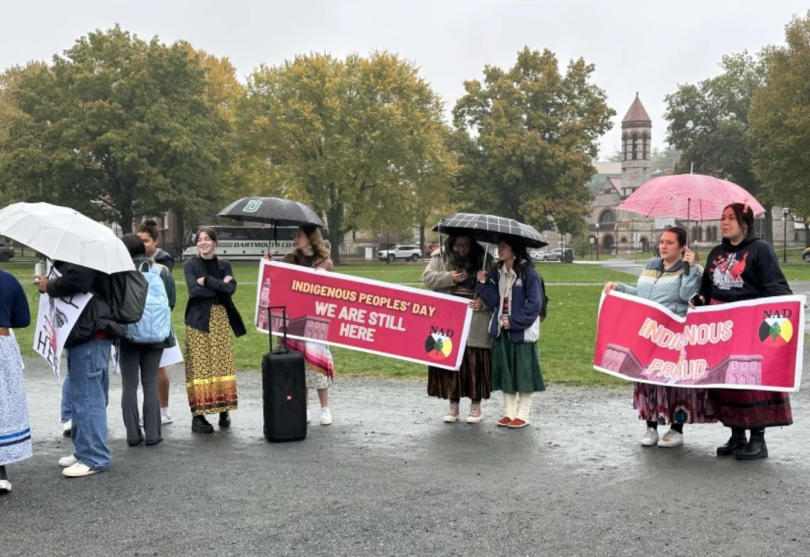
Q&A with Native Americans at Dartmouth Co-President Emma Tsosie '25
1. Can you introduce yourself?
Hello, my name is Emma Tsosie. I am a member of Picuris Pueblo, and I'm also Diné (Navajo). I'm a '25 at Dartmouth. I am one of the two co-presidents of Native Americans at Dartmouth, majoring in Native American and Indigenous Studies (NAIS) with a minor in Linguistics. After Dartmouth, I plan to continue working on my honors thesis in NAIS, which focuses on language and language revitalization.
2. What are some of the unique resources and support systems available to Native American students at Dartmouth?
One of the biggest resources is having faculty and staff advisors. There are amazing professors in the Native American and Indigenous Studies department who are super supportive and helpful. There are also official advisors in the Native American Program and at the Native American House. It's been incredible to have people I can go to for academic or personal support while at Dartmouth. Another really important resource is the Native student community itself. There are so many Native students who are excited to be in the community and who genuinely care about each other. That support has been a huge part of my success at Dartmouth.
The Native American House is also a major part of our community. It's a centerpiece of Native life on campus, where most of our events and meetings take place. It's also a casual gathering and study space. Food events are a big part of it because food is so important to many Indigenous communities. It's a place where we celebrate our individual cultures while creating a collective home away from home. It serves as a safe haven for many Native students.

3. What role do Native traditions and perspectives play in Dartmouth's academic and social life?
It mostly comes down to how students interact with each other—our student-to-student relationships involve a lot of cultural sharing. We also have major events like the annual Powwow and the Lu'au in the spring term, which celebrate some of our traditional cultural aspects. Another important event is the community drumming circle for Indigenous Peoples' Day. Beyond these events, I think the biggest way Native traditions and perspectives influence campus life is through everyday conversations and community connections. We share knowledge, talk about the things that matter to us, and bring our cultures into our interactions with one another.
4. What advice would you give to prospective Native American students considering Dartmouth?
The biggest thing is to use the resources available, especially through the Native American Program and faculty and staff who genuinely want to support Native students. There are so many people here who care deeply about the Native community, so reaching out and making connections will be really helpful. I'm incredibly grateful to have stayed connected with the Native community and taken advantage of these resources.

5. What makes Dartmouth a compelling choice for Native American students looking for a supportive and enriching college experience?
The Native student community is one of the biggest factors. The number of Native students here is amazing, and the way we come together and support each other is really powerful. This community is actually the reason I chose Dartmouth. When I was researching colleges, I saw how strong the Native community was, and that's what drew me here. It's such a caring and supportive environment—it's what has gotten me through my undergraduate years.
Being away from home can feel isolating, especially for Indigenous students who are so connected to the land. But having a community that understands that experience is invaluable. If you're having a hard day, there's always someone who knows what you're going through and can support you. And when someone else is struggling, you can be there for them. That kind of mutual support is incredibly important.
6. What has your experience as NAD co-president been like?
It's been really amazing. I've been on the NAD exec board since my freshman year, and this year, being co-president has been incredible. There are so many students excited to organize community events, come together, and work really hard to take care of this community. It's beautiful to see how much love and effort Indigenous students put into this community. We've had some really amazing events, and I feel like our community just keeps getting stronger. It's been an incredible experience
















